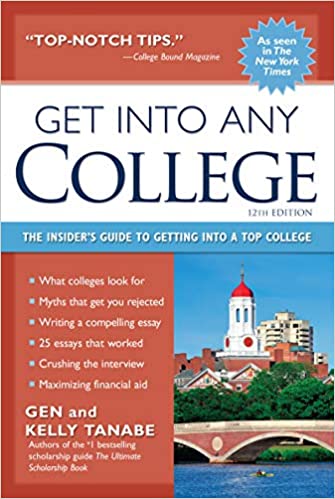If you need a reason to kiss up to your teachers or professors, here's one—recommendations. Both colleges and scholarship competitions sometime require that you submit recommendations from teachers, professors, school administrators, employers or others who can vouch for your accomplishments. These recommendations are used to get another perspective of your character and accomplishments. Viewed together with your application and essay, the recommendation helps the admissions officers or scholarship judges get a more complete picture of who you are. Plus, it's always impressive when someone else extols your virtues.
Many students believe that they have no control over the recommendation. This isn't true. You actually have a lot of control over the letters that your recommenders write. In this guide we will explore ten ways—all perfectly ethical—to ensure that you get great recommendations.
1
Find people who can say nice things about you.
Your first task is to find recommenders. Unfortunately, mom, dad and anyone else related to you are excluded. So, how do you get those recommenders without familial ties to sing your praises?
First, think about all the people in your life who can speak meaningfully about you and your accomplishments. Your list may include teachers, professors, advisors, school administrators, employers, religious leaders, coaches or leaders of organizations and activities in which you are involved. While some scholarships require recommendations from specific people (like a teacher or professor), most are pretty liberal and allow you to select anyone who knows you.
Second, once you have a list of potential recommenders, analyze which of these people could present information about you that best matches the goals of the scholarships. If you apply for an academic scholarship, you'll want at least one teacher or professor to write a recommendation. If you apply for an athletic scholarship, a coach would be a good choice. Select people who are able to write about the things that are most important to the scholarship judges. A good exercise is to imagine what your potential recommender would write and whether or not this would enhance your case for winning the scholarship.
2
Always give your recommender the chance to say "No".
Once you've selected those people you'd like to write your recommendations, ask them to do so. It's important to ask each person a question like this: "Do you feel comfortable writing a recommendation letter for me?" This allows the individual the opportunity to decline your request if he or she doesn't feel comfortable or doesn't have the time. If you get a negative or hesitant response, don't assume that it's because he or she has a low opinion of you. It could simply be that the person doesn't know you well enough or is too busy to write a thoughtful recommendation. It's much better to have the recommender decline to write a letter than to get one that is rushed or not entirely positive. In most cases, however, potential recommenders are flattered and happy to oblige.
3
Don't play the name game.
From being recognized by strangers to getting preferential reservations at the hottest restaurants, there are a lot of perks to being famous. You might think that this special treatment carries over to recommendations and that scholarship judges will be star-struck by a letter from someone with a fancy title. However, don't assume that just because you ask someone well known to write your recommendations that you are a shoo-in for the scholarship or guaranteed admittance to a college. In fact, you might be surprised to learn that doing so could actually hurt your chances.
So here's the question: "Should I try to find someone famous to write a letter of recommendation for me?" The answer comes down to this: How well does the person know you, and can he or she write about you in a way that presents you as a viable candidate for the scholarship or college? If the answer is "yes," then by all means ask that individual to help you. However, if you don't know the person very well or if what he or she will write could lack a connection to the qualities that the college or scholarship committee is seeking, it would be better to forgo the value of high name recognition and ask someone to write a letter that can address what's most important.


